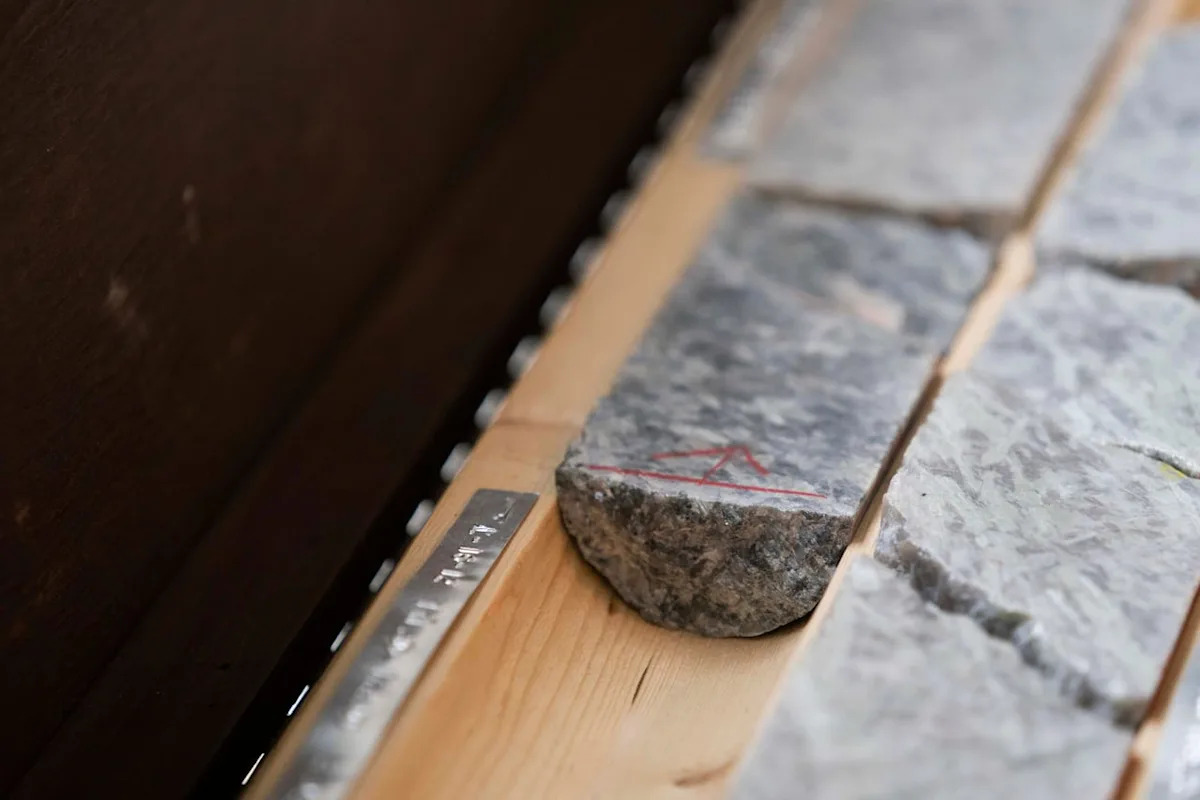
A Calgary-based resource development company that’s testing a particular method for extracting lithium says its central Alberta pilot project has reached a significant milestone.
E3 Lithium’s demonstration facility, known as the Clearwater Project, is located east of Olds, Alta. It is testing direct lithium extraction technology for commercial scale.
The process pumps brine from underground oilfield aquifers, extracts lithium and then reinjects the liquid back.
Phase 1 of the pilot project began in September and E3 Lithium says it produced battery-grade lithium within three weeks. Chris Doornbos, the company’s CEO, called the latest technological successes significant steps in proving the viability of the technology.
The next phase of the project involves drilling a production well and an injection well. E3 Lithium says securing financing to move its work forward is key.
“That’s the biggest challenge I think the company faces right now, … bringing that finance together,” Doornbos said in an interview.
The company announced last week that it will sell some of its assets in Saskatchewan’s Estevan lithium district to “an arm’s length private company” for about $4.29 million, refocusing its finances toward the Clearwater Project.
WATCH | Could lithium become Alberta’s next major resource?
Active development
In a statement issued about the Estevan asset sale, Doornbos said E3 Lithium remains focused on building Canada’s first fully-integrated lithium production facility.
“By monetizing these non-core lithium assets in Saskatchewan, we are unlocking value that bolsters our financial position and supports our Clearwater Project’s active development that will help us reach a final investment decision,” he wrote.
The next 12 months will be critical, Doornbos said, as the company works to complete its feasibility study, secure permits and arrange financing to have a commercial facility “shovel ready” by early 2026.
He said the target is to start commercial production in 2028, with plans for about 36,000 tons of lithium carbonate annually.
Once operational, the facility is expected to create around 200 full-time jobs, as well as hundreds of temporary construction jobs to build it in the first place.
“A lot of that’s going to be done locally,” Doornbos said.
Estimated to cost around $2.5 billion, the project has already received $27 million from the federal government and $5 million in provincial support through the province’s Emissions Reduction Alberta initiative.
A ribbon cutting event was held for Phase 1 in September, where Energy Minister Brian Jean said lithium is key to Alberta’s energy future and that he is pleased to see the project making progress.
“Critical minerals like lithium are a big part of powering everything from cars, phones to data centres,” Jean said.
“They’re showing how mature oil and gas sites can be repurposed for this mineral development, which means there’s a good cost proposition there.”
Doornbos said E3 Lithium’s goal is to demonstrate a low-impact production process, and to produce lithium that is sellable directly to the battery industry without any need for post-processing, which normally happens in China today.
“The project that we will develop will use minimal land and very little to no water, making it one of the least impactful lithium production projects globally,” he said.
Environmental researcher has questions
Teresa Kramarz, associate professor at the University of Toronto’s School of Environment and co-director of the Environmental Governance Lab, said the direct lithium extraction technology E3 Lithium is using is promising, but has not yet reached industrial scale.
She noted it is still being piloted in Canada and globally, including in Argentina and Chile.
“A lot of things are still hypothetical,” Kramarz said.
Among the key concerns she raised are environmental impacts, particularly how the process could alter hydrological systems, affecting groundwater pressure, quality and subsurface water flows.
“When something is still a pilot, there’s a lot of modelling of impacts,” Kramarz said.
Lithium, a critical resource in rechargable battery production, is so unstable that it only occurs in nature in compounds. (CBC/Radio-Canada)
“So I think the more important things will be to ensure that there are some really clear baseline measurements to figure out what is happening.”
Kramarz said she is eager to see projects — like the one E3 Lithium is working on — evolve, especially to see what safeguards are implemented and how risks such as unforeseen mining waste are managed.
She stressed the importance of strong regulatory oversight as Canada pushes to expand critical minerals production.
“There’s such a push to develop them that the regulatory oversight can lag behind,” she said.
Disclaimer: This news has been automatically collected from the source link above. Our website does not create, edit, or publish the content. All information, statements, and opinions expressed belong solely to the original publisher. We are not responsible or liable for the accuracy, reliability, or completeness of any news, nor for any statements, views, or claims made in the content. All rights remain with the respective source.
